Dressed in his smart casual ensemble with a bespoke backless apron-vest that his designer wife Happy Andrada-Gras created, Tanguy Gras welcomes me into the kaleidoscopic, patchwork-quirk of a space that now houses the physical manifestation of their pandemic-born online food business H&T Wine Gallery.
“Hello,” says Tanguy with a smile, swooping in from the retro bar he was manning seconds ago. If this kind of attention were any indication of the experience customers can expect, then we’re in for a treat. I found out later that Tanguy was the former director of food and beverage at MGallery and has spent nearly seven years at Sofitel Philippine Plaza Manila’s F&B outlets.
“So that’s where this quiet confidence comes from,” I thought to myself, before realizing later that this hospitality cachet could also be attributed to his time spent doing seasonal work as a 17-year-old waiter of a 150-seat restaurant in Monaco.
H&T Wine Gallery is a frenzied, manic, wildly colorful, diverse wonderland of widely differing influences. It is super charming and dense but also light to the senses, depicting the wine gallery experience the founders wish to espouse.
“You get from zero covers to 120 in a span of 10 minutes,” he says. “So your threshold for stress is pretty high but it’s okay. It helps me with this kind of experience.”
Not that there’s a total absence of pleasure at H&T Wine Gallery where his co-founder wife and fashion designer Happy, well, happily transformed the then-atelier into what it is now—a frenzied, manic, wildly colorful, diverse wonderland of widely differing influences. It is super charming and dense but also light to the senses, depicting the wine gallery experience the two wishes to espouse.
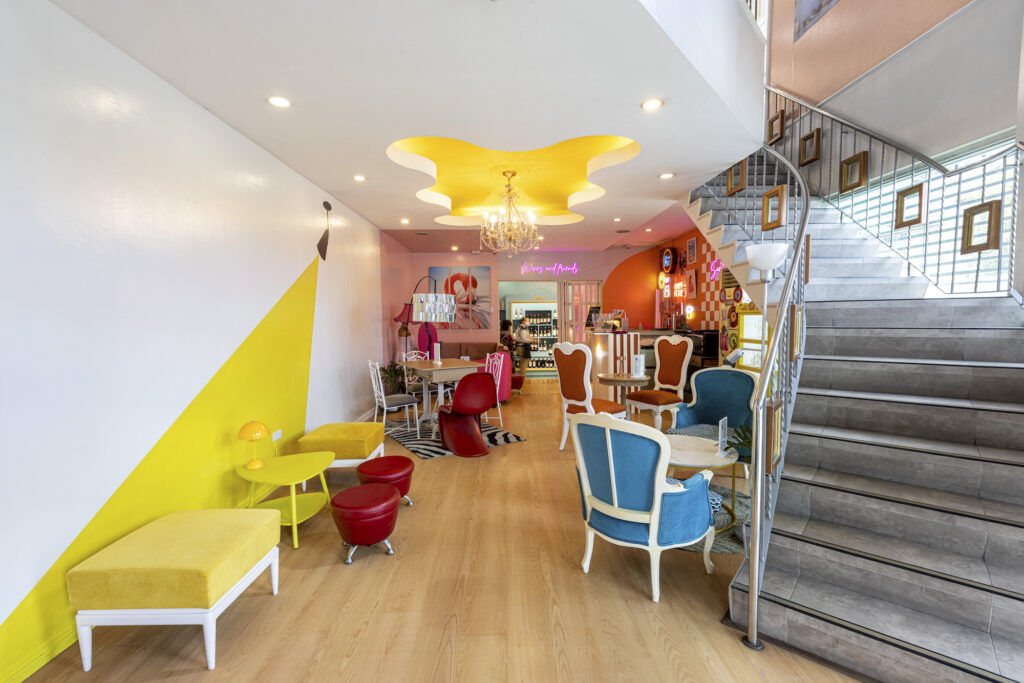
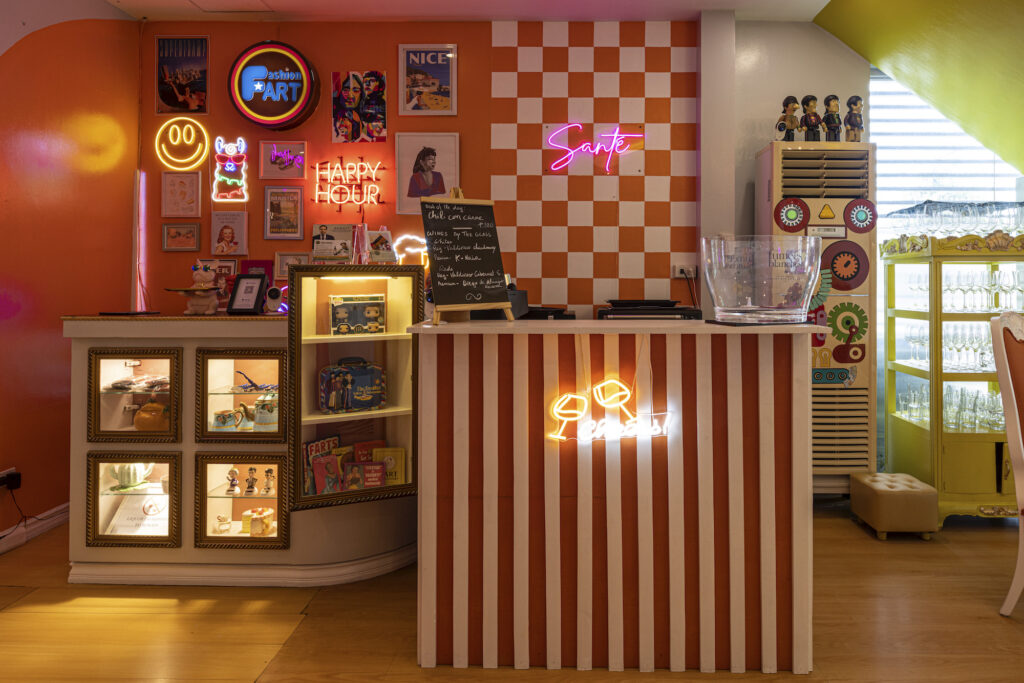
The diverse environment is broken down into color blocks and delineated according to each pocket’s vibe—a pink sitting area that beckons a flight of flamingos, a yellow spotlight backdrop that Happy herself patterned, cut and plastered onto the white wall, and farther down the back is the cool storage area of the more than 90 different wine labels and affiliations (mostly Old World, Bordeaux, and Spanish wines), cheeses, and charcuterie as well as a sparkling blue bathroom with a disco ball to boot.
Sure, the interior design and the wines are definite hooks but, as I learn from both Tanguy and Happy, this wine gallery also characterizes two important things: That this long-awaited labor of love is a result of finding clarity amid chaos and that, yes, working with your spouse can also lead to some sparkling outcomes.
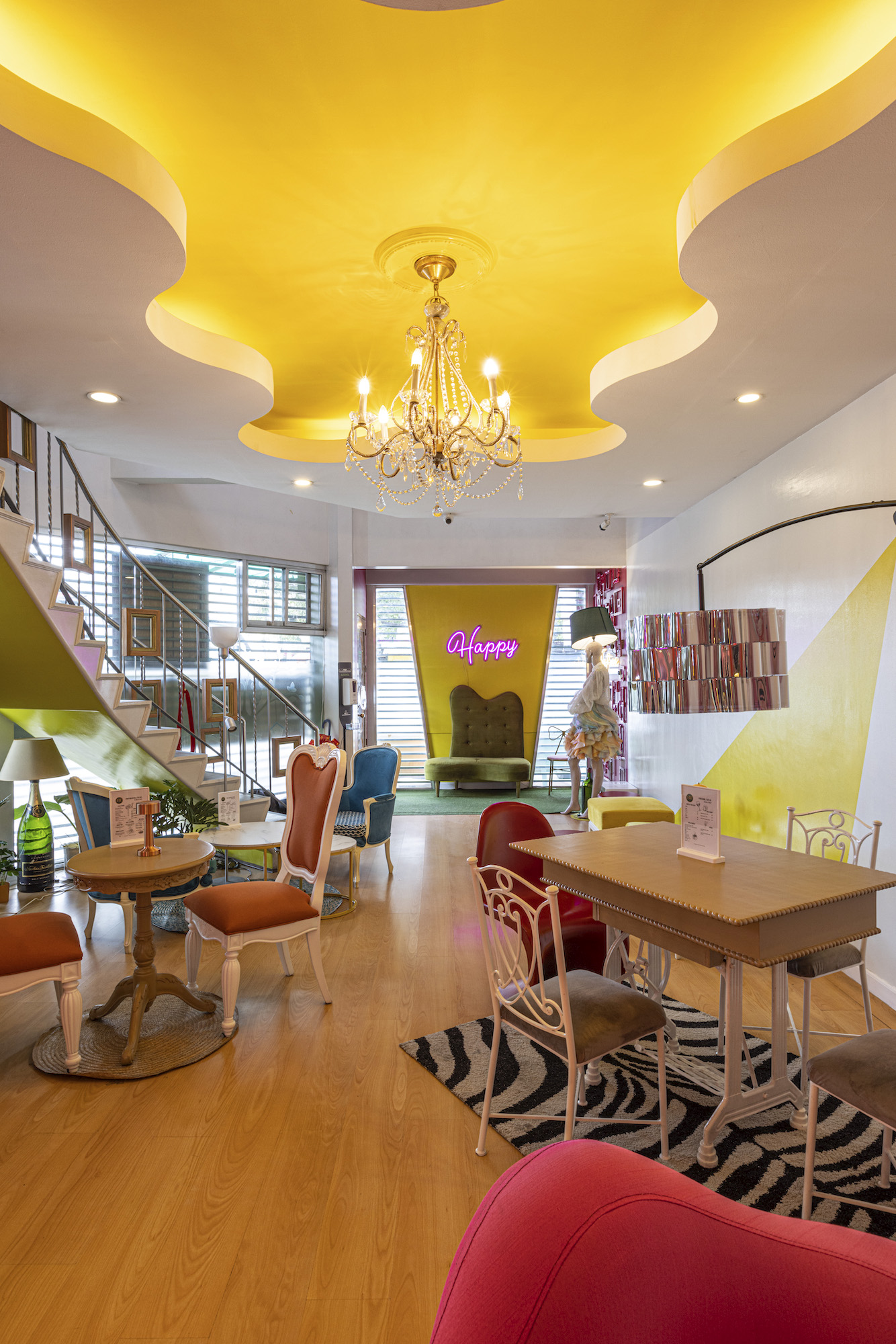
So this is originally an online business and now you finally opened your first store.
Tanguy Gras (TG): Actually the idea was physical first but the pandemic happened. I was still working with MGallery and we decided like ‘okay, let’s open a wine bar with simple food’ and then the pandemic happened. So we opened it online. And for two years we’ve been sending wines, cheese, croquettes, and it was doing great. We could have opened earlier but because of the lockdown and the liquor ban, forget the bar (laughs).
How did you end up with this space?
TG: Actually this is Happy’s place!
Happy Andrada-Gras (HAG): It’s not my place, it’s our place (laughs). So we opened in 2007 and called it Fashion Art, that’s why it’s called Fart; it’s a mixture of fashion and art. It was my atelier downstairs and the second floor was an art gallery. It was like that for years but then we decided to expand the fashion business. And now we decided to move H&T Wine Gallery here, which is perfect because I work upstairs and he’s here downstairs. So we work together.
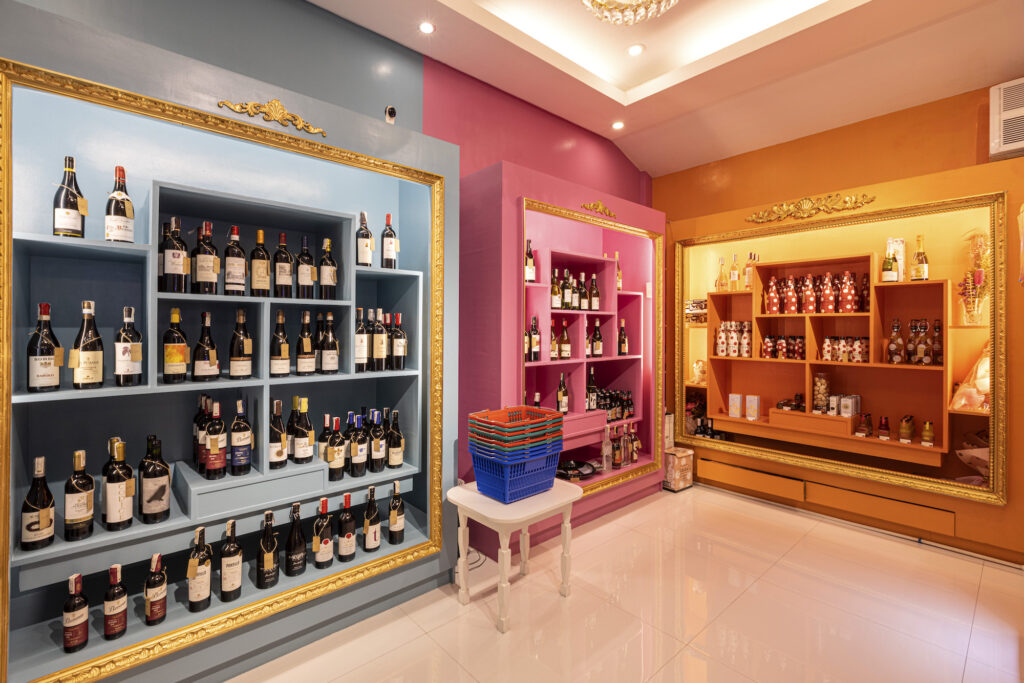
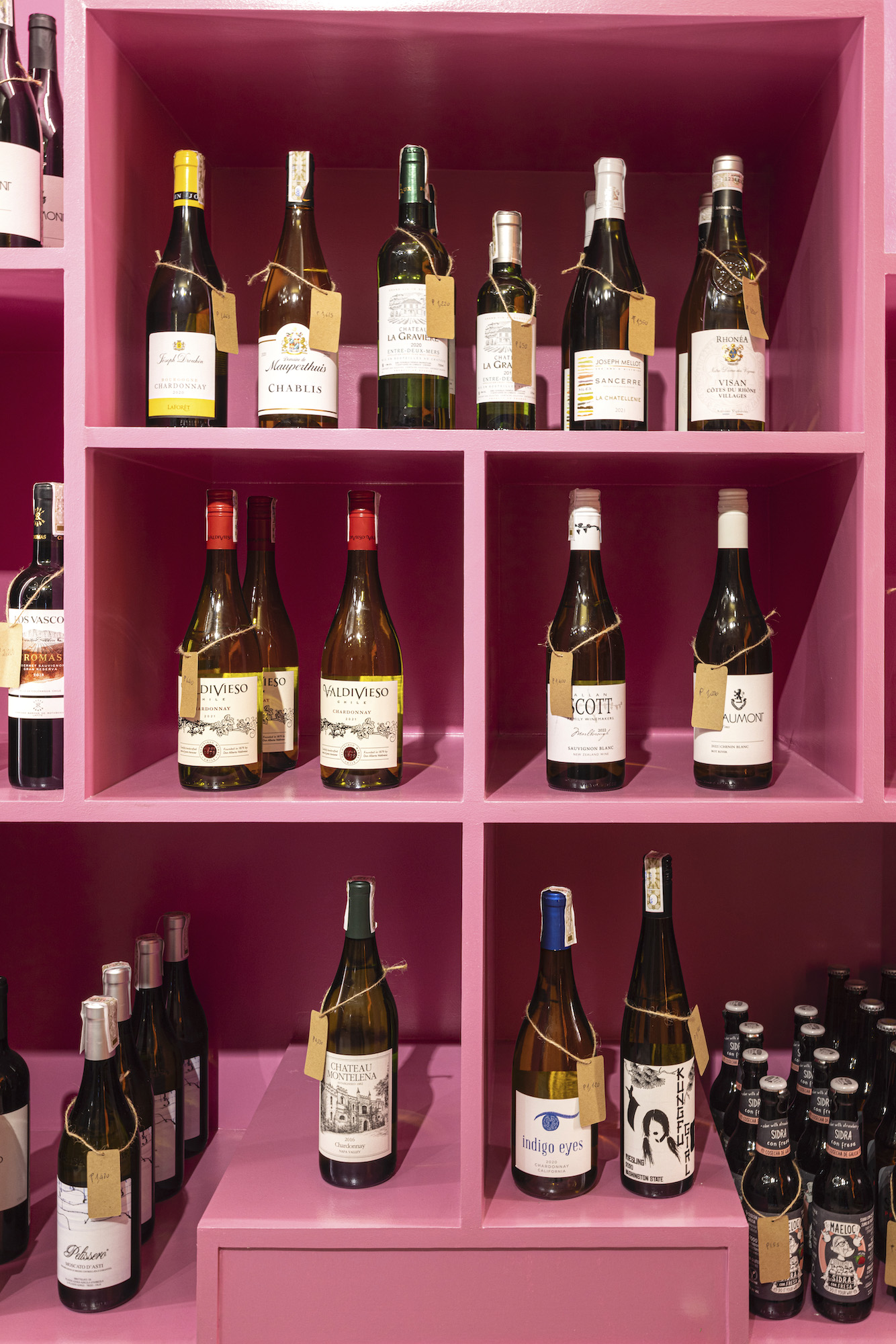
You have the best of both worlds.
HAG: Yeah, so anytime I want to drink wine, I can (laughs).
TG: At night sometimes before going home, we have a glass of wine. But we do have coffee also so people can have that and a bite. We have a very simple menu. It’s really the items that pair with wines. We have a kitchen that is more like an assembly kitchen so we cook some hot tapas from scratch but those are easy to make. We didn’t want to make it so complicated.
So it’s just the two of you overseeing and doing everything?
TG: Yes. We have someone to help us on weekends when we get busy. But we do everything; we cook and we serve. It’s what we wanted to do anyway. We didn’t want to open a place and let someone handle it for us. And we don’t want to classify ourselves as a restaurant because we’re not really a restaurant.
“We have a focus on the Old World. A lot of Bordeaux wines. But we also love Spanish, which is well represented here. We love Spanish wines, [you get] value for the price you pay. [If you’re getting] from the Old World wines, definitely go for Spanish,” says Tanguy Gras.
Tanguy, would you say it’s easier for you since you have a background in foodservice?
TG: My first job was as a waiter when I was 17 years old. It was a summer job. I was studying economics and I decided to switch to hospitality because I loved it. But well, this is a small place. We wanted to keep it this way so it’s manageable for us.
Did you encounter any challenges when you were transitioning from online to a brick and mortar?
TG: I think it’s sometimes more difficult when you’re a restaurant and then you have to move online. The other way around is pretty simple and it’s even easier for us because before we operate from home so we have all the wines in the chiller or in the storage area but it’s not all in one place. Sometimes you have to run upstairs to get an item. Here everything is on hand.
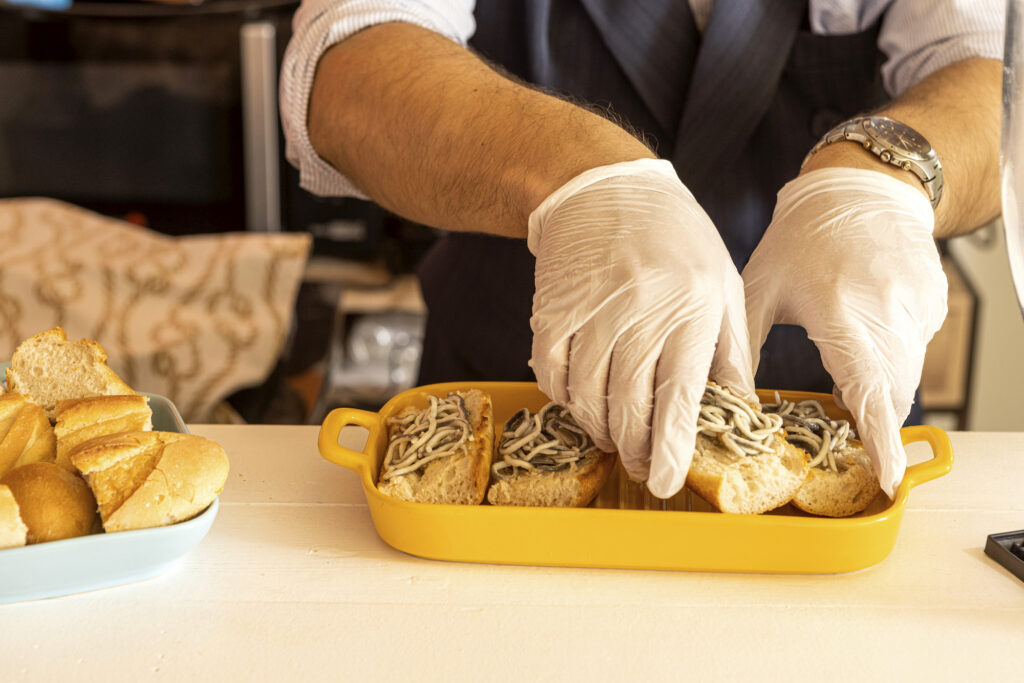
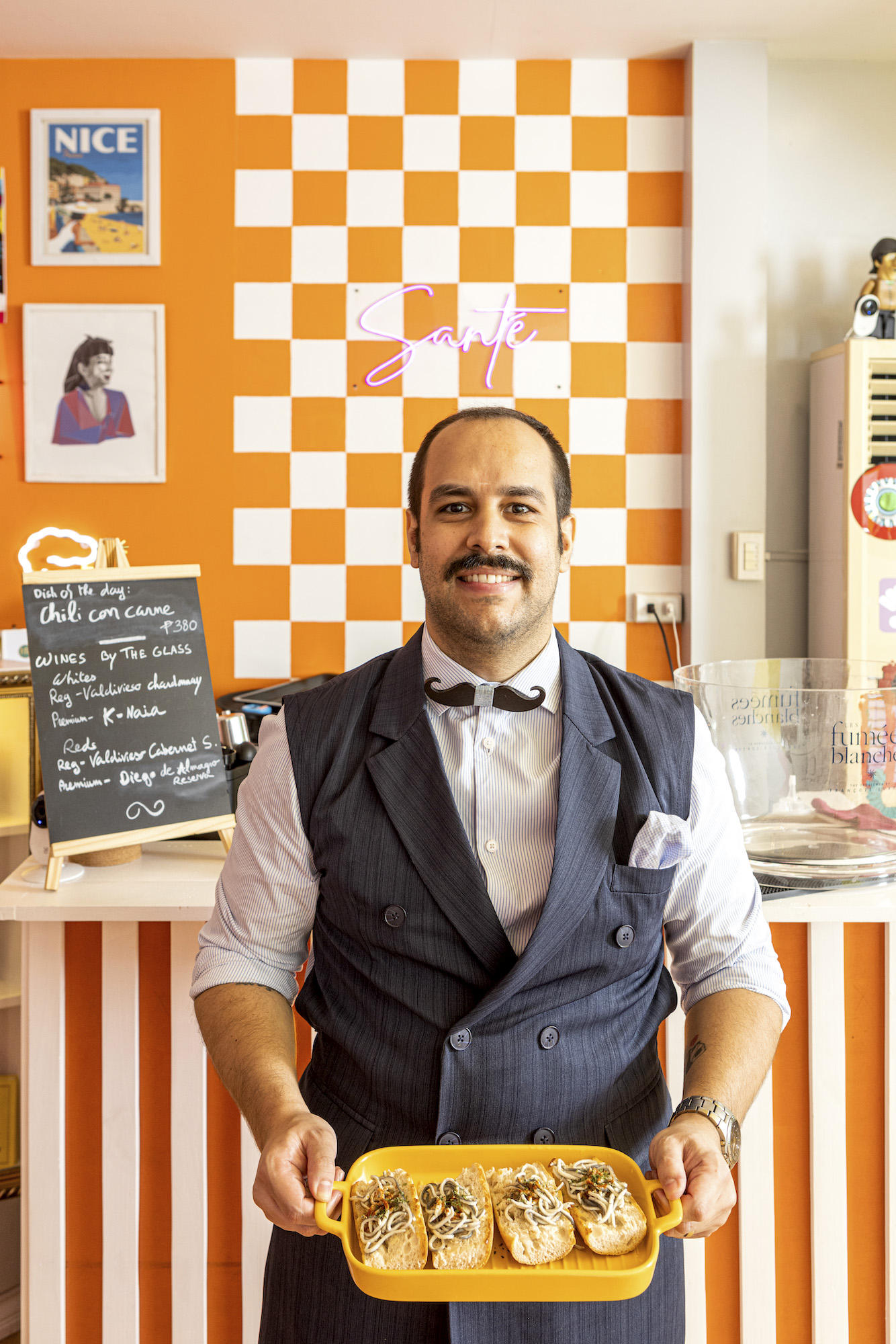
How do you think entrepreneur couples should work together? Do you have any personal advice or tips?
HAG: It’s about collaboration. It’s respecting each other and knowing each other’s strengths, and who’s specializing in that aspect. Like Tanguy, he has the freedom [and knowledge] about food and wine. You should be a team all the time. You should help each other out and always be there for each other. If you have disagreements, always meet halfway.
“It’s about collaboration,” says Happy Andrada-Gras on how couple entrepreneurs should work. “It’s respecting each other and knowing each other’s strengths, and who’s specializing in that aspect. You should help each other out and always be there for each other. If you have disagreements, always meet halfway.”
TG: It’s also the fact that we’ve been together. When a couple can survive a pandemic and being stuck together for 24 hours, seven days a week for two years, this really shows the strength that ‘okay, you know, working together will not be a problem.’
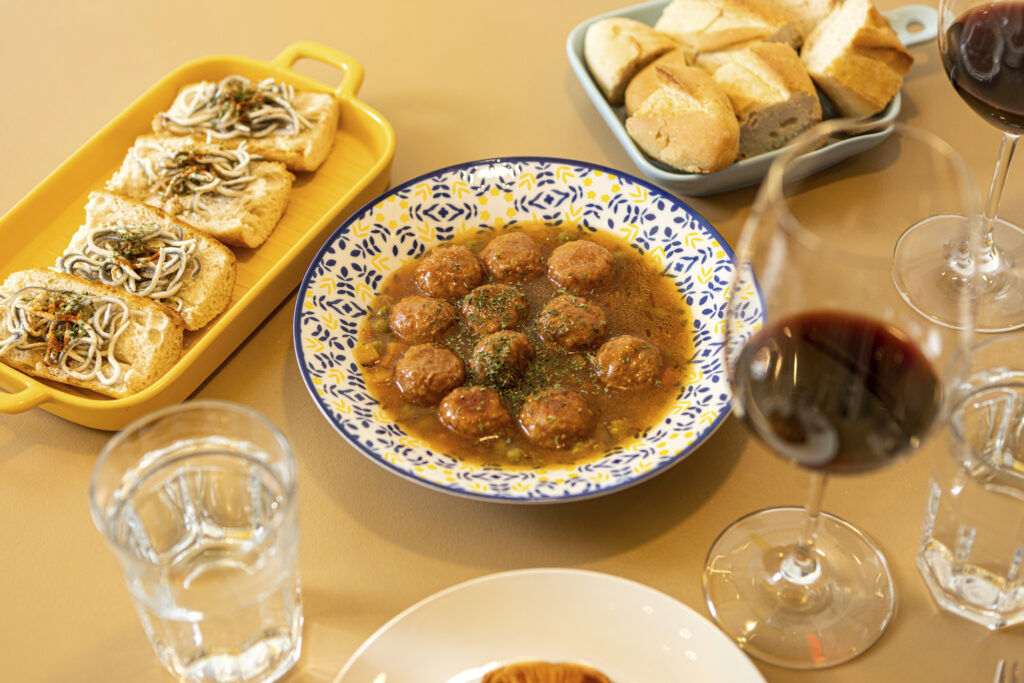
Happy, did fashion inform your approach to running H&T Wine Gallery? Or were there any similarities between the two?
HAG: The only thing that’s common probably is stress (laughs). It’s similar to ready to wear; we have to make something fast. Food has to be served fast too. The only thing that I injected into H&T Wine Gallery is the design.
TG: And the love!
HAG: And the love for it and the passion! I love to eat and I love wine as well.
“People sometimes see competition as a bad thing but it’s a good thing. That’s why all competitors are next to each other. We are a bit secluded, but as we mentioned we’re a small place and our aim is to fill up a small place, not to have 100 people every day,” says Tanguy Gras.
For anyone looking to open a business or transition from digital to physical. What would your advice be?
TG: First of all, if your business is online it’s good that it’s already self-sufficient. It’s important because a physical store needs a lot of investment. A size like this one is still manageable. You don’t need to have so many investors if you’re able to save a little bit, but I think self-sufficiency is good. And also have your pool of customers. So while you’re building this and trying to get people in, money still comes in because you already have customers who buy online. Be ready also to not to pay yourself for the first six months.
HAG: It’s really important to take care of your customers always, like watching over them. It’s about customer satisfaction. That’s the business we are in and for example, we’re the ones personally replying to everyone so we can watch over everyone’s issues and concerns.
TG: And it’s important because those people will come back. And then if you’re a small business, you need those people to come back all the time.
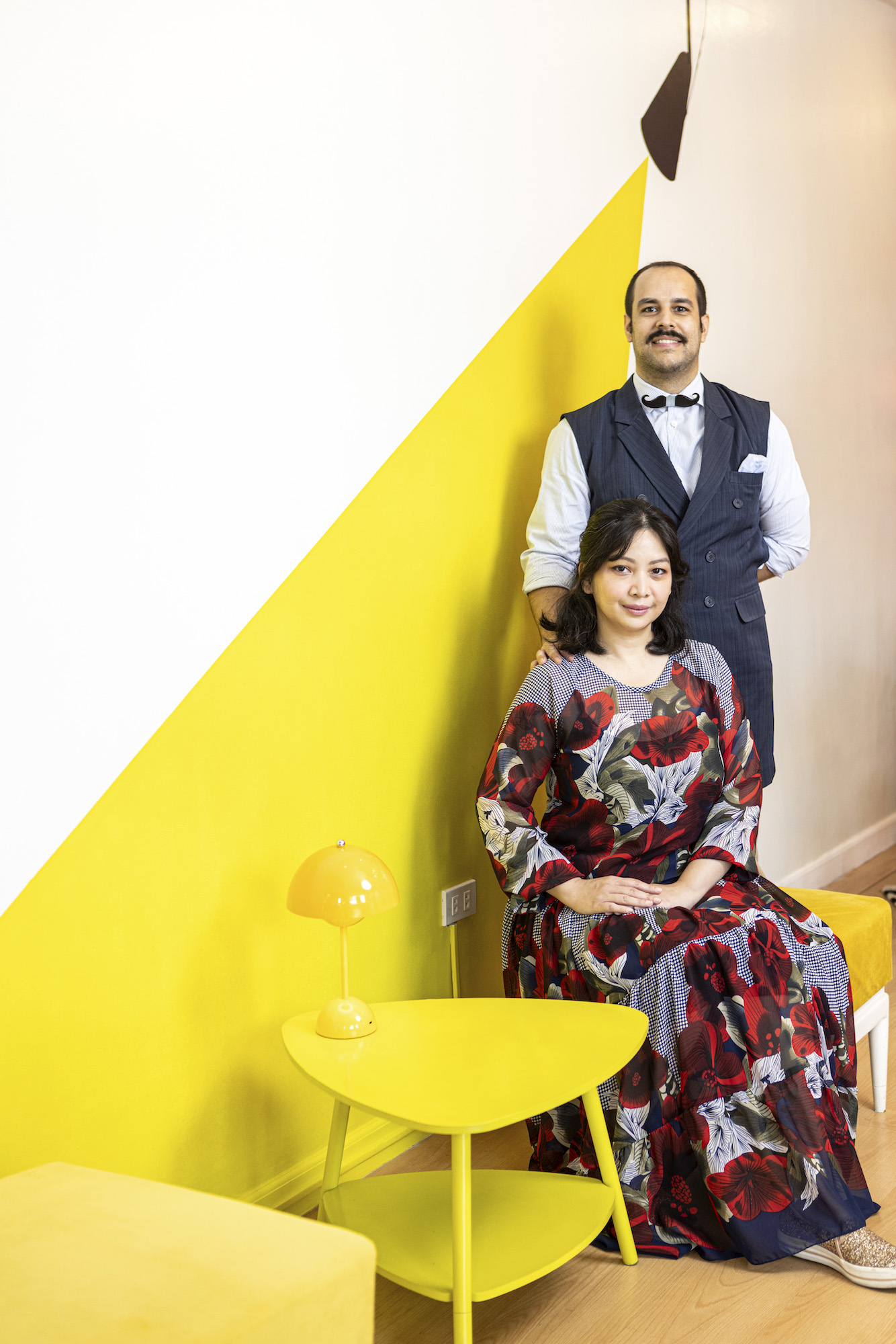
And your thoughts about dealing with competition?
TG: Sometimes people stay away from competitors but competition nearby is a good thing because people already go there. This means they will see you here and then they will want to try you out. People sometimes see competition as a bad thing but it’s a good thing. That’s why all competitors are next to each other. We are a bit secluded, but as we mentioned we’re a small place and our aim is to fill up a small place, not to have 100 people every day.









































